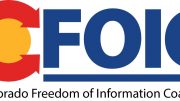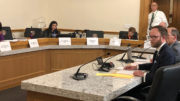By Jeffrey A. Roberts
CFOIC Executive Director
An updated memo from the Office of Legislative Legal Services suggests that members of the Colorado General Assembly take a conservative, “risk-management” approach to managing their social media accounts following the U.S. Supreme Court’s ruling last March in Lindke v. Freed.
The 10-page draft document, discussed by the legislature’s Committee on Legal Services on Thursday, notes that “numerous public officials, including multiple Colorado legislators” have faced lawsuits in federal court for blocking people or otherwise restricting access to a public forum.
In Lindke, the Supreme Court unanimously “recognized that public officials have a First Amendment right to speak as private individuals if the speech does not constitute state action by the official,” the OLLS memo says.

The justices established a two-prong test for determining when a public official has “engaged in state action” and can be sued for deleting comments and blocking critics: 1) if the official possessed “actual authority” to speak for the government and 2) if the official “purported to exercise that authority” by speaking on social media.
The “safest approach” for legislators to avoid litigation, OLLS advises, is to disable the public’s ability to interact with their social media accounts or to “not delete, filter, block, ban, or hide any persons or conversations.”
But if they want the ability to delete comments or otherwise restrict someone’s access, they shouldn’t use state government resources such as having aides or interns manage their accounts, the legal office adds. And they shouldn’t post about matters “that may appear to be discharging an official duty,” such as a chairperson announcing a committee hearing schedule or the speaker announcing committee appointments.
Legislators will “create a heavy presumption” that their social media is personal, OLLS says, if they include a disclaimer that any views expressed are strictly their own and not those of the House, the Senate or the state.
The memo advises legislators not to rely on House Bill 23-1306 “as a basis for restricting or barring an individual from the legislator’s social media.” The measure, signed into law by Gov. Jared Polis in June 2023, lets state elected officials block anyone from their private social media accounts for “any reason, including bullying, harassment, or intimidation, in the state elected official’s sole discretion.”
While that provision is presumed to be constitutional, OLLS says, “it would not be binding on a federal court for purposes of applying the state-action test.”
The legal office also is warning legislators they could still be sued, even if there is no “state action” involved in their social media use: “While the legislator may ultimately prevail in getting the matter dismissed or otherwise favorably resolved, this type of lawsuit can be time-consuming and expensive. Moreover, if the basis of the lawsuit is that a legislator blocks a person, instead of deleting a comment, the scope of the inquiry may be broader and thus prolong the disposition of the case.”
A lawmaker “might win a social blocking case and might even be more likely to win under Lindke v. Freed than before the Supreme Court handed this order down. It’s still no fun to be tied up in that,” said Rep. Mike Weissman, the Aurora Democrat who chairs the Committee on Legal Services.
“And as custodians of tax funds, I think it’s appropriate that this committee continue to stand behind the delivery of guidance to the rest of the legislature that a high degree of caution in the first instance is the best way to avoid anything down the road.”
Follow the Colorado Freedom of Information Coalition on X (formerly Twitter) @CoFOIC. Like CFOIC’s Facebook page. Do you appreciate the information and resources provided by CFOIC? Please consider making a tax-deductible donation.




